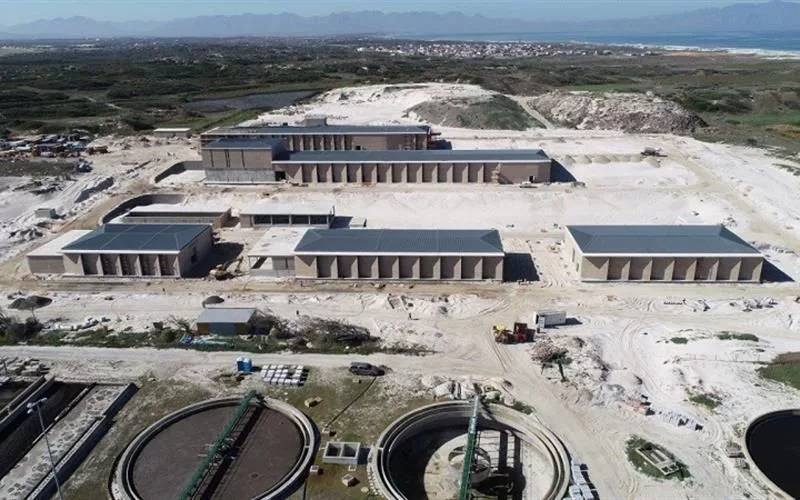Cape Town’s call centre industry has grown rapidly in recent years, creating over 10,000 jobs in just one year, and reaching a total of 90,000 employees. The success is partly attributed to CapeBPO, a project that develops skills within the industry and promotes Cape Town as an ideal location for BPO firms. The sector adds a significant amount to the city’s economy and is evidence of the effectiveness of public-private partnerships. Initiatives like the Afterschools and Sunday School programs ensure sustainability by providing job training and industry exposure to potential employees. This success is a symbol of hope for young people in Cape Town.
Cape Town’s call centre industry has created over 10,000 jobs in a year, reaching a total of 90,000 employees. The city’s success is partly due to CapeBPO, a project aimed at developing skills within the industry and promoting Cape Town as an ideal BPO location. The sector adds R21 billion to the city’s economy and is evidence of the effectiveness of public-private partnerships. Sustainability is ensured through initiatives like the Afterschools and Sunday School programs, which provide industry exposure and job training for potential employees. This success is a symbol of hope for young Capetonians.
Cape Town’s Magnificent Transformation
The African sun descends over Cape Town, casting a splendid canvas of rich orange and deep purple hues across the bustling cityscape. The city stands as a beacon of development, with its remarkable transition from a serene coastal enclave to an energetic global epicentre of the Business Process Outsourcing (BPO) sector. This tremendous transformation reached a crowning moment, the creation of over 10,000 local jobs in the span of a single year, from March 2023 to 2024.
The call centre industry in Cape Town has undergone a significant evolution, now harbouring an impressive 90,000 employees. This noteworthy accomplishment was lauded by Mayor Geordin Hill-Lewis and Mayoral Committee Member for Economic Growth Alderman James Vos, who visited EXL and Teleperformance, two call centres that played a crucial role in the job creation boom of the past year.
The Driving Force Behind the Success
At the heart of Cape Town’s BPO triumph is CapeBPO, a project funded by the City. This Special Purpose Vehicle (SPV) is aimed at fostering skill development within the call centre industry and promoting Cape Town as the ideal location for BPO firms. The ultimate goal is to trigger economic development and generate employment opportunities, especially for the city’s younger population.
Mayor Hill-Lewis applauds the sector’s growth, underlining that the emergence of new call centre jobs is not merely about providing employment. It’s about encouraging personal growth and enhancing potential futures. This positive impact resonates throughout the local economy, as the sector adds a staggering R21 billion to the economic wealth of Cape Town.
Cape Town’s appeal as a global BPO destination is undeniable. Corporate giants like Teleperformance, EXL Service, and Concentrix have chosen to establish their business foothold in Cape Town, affirming the city’s status as a global BPO hotspot.
Sustainability and Future of the BPO Sector
Critics may question the sustainability of such a rapid expansion. However, Alderman Vos counters these concerns, asserting that the BPO sector is a sturdy pillar of foreign direct investment in the city. The growth of this sector is evidence of the effectiveness of public-private partnerships that genuinely contribute to community development. By prioritising this sector, Cape Town is not only nurturing a robust economic climate, but also reinforcing its position as a leading BPO nexus in Africa.
CapeBPO plays a crucial function in this advancement. Through initiatives like the Afterschools programme and Sunday School, it offers opportunities for potential employees to gain industry experience and develop essential skills.
The Afterschools programme provides learners in Grades 11 and 12 with direct exposure to the BPO industry and its possibilities. Sunday School, on the other hand, is tailored to unemployed youth. After a three-week course and an open industry recruitment session in the fourth week, participants emerge better prepared for the workplace and more conversationally fluent.
Eager to sustain the sector’s growth, Alderman Vos has urged his Economic Growth team to think creatively. The objective is to train more Cape Town residents and attract operators to set up their businesses in the city. His commitment to improving infrastructure, optimising processes, and providing training incentives is unwavering. This reflects the city’s dedication to broaden the sector’s influence and back local talent, ensuring that Cape Town remains a leader in the global BPO scene.
A Tribute to Cape Town’s Robustness and Hope for Youth
Indeed, the call centre explosion in Cape Town is more than just a symbol of job creation. It’s a testament to the city’s tenacity, flexibility, and dedication to economic growth. Above all, it’s a beacon of hope for thousands of young Capetonians who now have the opportunity to sculpt a brighter future.
1. How many jobs has Cape Town’s call centre industry created in just one year?
Cape Town’s call centre industry has created over 10,000 jobs in just one year, from March 2023 to 2024.
2. How many employees does Cape Town’s call centre industry currently have?
Cape Town’s call centre industry currently has an impressive 90,000 employees.
3. What is CapeBPO and what is its purpose?
CapeBPO is a project funded by the City aimed at fostering skill development within the call centre industry and promoting Cape Town as the ideal location for BPO firms. Its ultimate goal is to trigger economic development and generate employment opportunities, especially for the city’s younger population.
4. How much does the call centre industry add to Cape Town’s economy?
The call centre industry adds a staggering R21 billion to the economic wealth of Cape Town.
5. What initiatives ensure sustainability for the call centre industry in Cape Town?
Initiatives like the Afterschools and Sunday School programs ensure sustainability by providing job training and industry exposure to potential employees.
6. How is Cape Town committed to sustaining the growth of the call centre industry?
Cape Town is committed to sustaining the growth of the call centre industry by training more Cape Town residents and attracting operators to set up their businesses in the city. The city is also improving infrastructure, optimizing processes, and providing training incentives to back local talent and ensure that Cape Town remains a leader in the global BPO scene.












